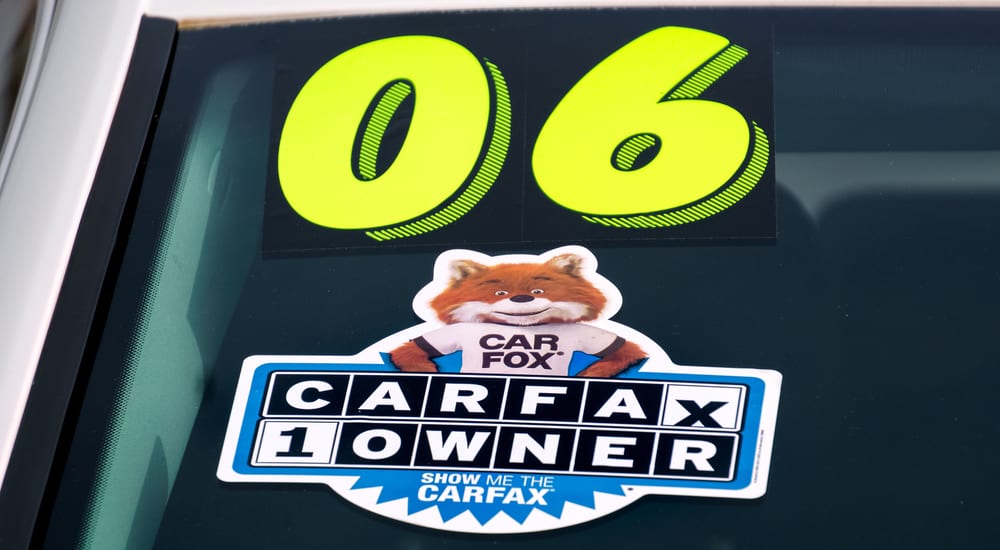If you’re currently scanning the market for used cars, you probably don’t need this article to remind you that it can be an ordeal full of stress and uncertainty. Whether it is the specific seller, some unclear mechanical issues, or just your own personal doubts, it can be difficult to purchase a used car with confidence. However, if you understand the industry and its quirks, you can easily get a leg up and find that great deal on a used car.
In this article, we will cover some of the more common issues you will likely run into when looking for that perfect used car. We will also offer some solutions to help make this process a little less painful.
The Problem: Untrustworthy Sellers
One of the biggest frustrations a potential used car buyer will run into is not knowing exactly who the person is that is selling them the car. Even with some accredited dealerships, it’s easy to find doubt in the salesmanship and lenient financing plans. Regardless of your financial standing and what specific car you’re looking for, it’s crucial to have a solid understanding of who is selling you your car.
The Solution: Well-Reviewed Dealerships
While this solution may seem fairly obvious, we wouldn’t be stating it if it wasn’t an incredibly important part of finding the right used car. Use the internet to vet your local dealerships and read customer reviews to learn about past experiences and the overall reputation. If you want an even closer look at your potential dealership, take a trip down there to talk to some of their team and get the best idea possible about what you would be getting yourself into. Be sure ask as many questions as you need to have the best understanding possible about how they certify their vehicles, and most importantly, how they treat their customers.
Luckily for us, their numerous sites dedicated to keeping dealerships honest and providing consumers with the best possible routes to finding an excellent used car of their own.
The Problem: Unclear Vehicle History
Going hand-in-hand with the reputation of your local dealership is the actual quality of that used vehicle you have your eye on. While dealerships can make a lot of promises about what they’re selling you, without the proper documentation it can be nearly impossible to know for sure. The upside of this fact is that there are ways to obtain detailed reports and records from any used car’s storied past. Whether it was a significant mechanical issue, car accident, or an ice cream cone dropped on the back seat (well, maybe not that specific), any good car report will give you these details.
The Solution: CarFax and Certified Pre-Owned

A thorough and simple step to getting to know the history of your used car is running a vehicle history report. To locate this, you will need the car’s vehicle identification number (VIN); you can do this by either obtaining a basic free history report through a government-run public service or purchasing a more detailed history report through a private service. The National Motor Vehicle Title Information System is an excellent free service, while sites like Carfax provide paid and more detailed histories.
Regardless of which service you choose, a vehicle history report outlines important facts about the car. By pulling from a comprehensive database of public records, a vehicle history report can tell you who the previous owners were, any prior accidents, whether the odometer has been tampered with, and its inspection ratings. Once you review your comprehensive vehicle report, you will know everything you need about your car.
If you feel comfortable spending a little more money, the next option you should strongly consider is purchasing a certified pre-owned vehicle. To increase confidence in used car purchases, many manufacturers have developed their own certified pre-owned (CPO) programs. These programs are a comprehensive and detailed checklist that any used vehicle must go through before getting a manufacturer’s stamp of approval and heading out onto the lot to be sold.
Most CPO programs consist of a multipoint inspection, which involves checks on hundreds of individual parts to ensure they meet the requirements of the respective car maker. CPO cars will often come with an extended warranty to increase the confidence of the buyer and highlight the manufacturer’s confidence in the quality of the product they are selling.
Bonus Solution: Make Friends with Your Mechanic
Although not everyone will be so lucky, it certainly pays to be on friendly terms with your local mechanic. The next time you’re at your local garage, talk to the folks there, bring them some coffee, maybe even a fresh tray of cookies, who knows, it really could come in handy later on. When you have used car in your sights, have a licensed mechanic take a look at it to identify any issues that could potentially pop up later on. Friends made, and future crisis averted!
The Problem: Not Knowing Your Budget
Now this is one that is surprisingly easy to overlook. You’re focused on where you’re going to buy your car, which car you want to buy, and once you find one you like, you have to do research to make sure it’s even worth the investment. But let’s not forget one of the most important and unpleasant topics of the whole thing: money.
So, the issue to be addressed here isn’t that you don’t know your budget at all, but maybe you haven’t really thought it through. With the down payment, monthly payments, insurance, and more, it’s worth giving your finances another look to ensure you know exactly what your limits are. This will help to make sure that you aren’t getting less (or more) than what you want.
The Solution: Review Your Finances, Weigh the Options
The first step here really is just to review and familiarize yourself with your complete financial situation. You need to be fully aware of what kind of payment plan you can be on, contingent with your income and credit score. If you are lucky enough to have a dealership that you know and trust, they can act as an excellent resource for weighing your current financial situation with their current available lineup. You can also explore options such as buy here pay here to get the absolute most out of your money.
On the other hand, you can also visit a trusted financial adviser to give you more insight regarding your options for buying your used car. While this may seem like a hassle, it’s a very minor time commitment for a significant confidence boost in your purchase.
Final Tip: Don’t Settle!
Now that we’ve covered some of the classic hallmark stressors of buying a used car, you have some excellent tools to help you find the best vehicle for the best price. Whether you’re braving a market full of unfamiliar sellers, diligently researching the maintenance history of a 20-year-old car, chumming it up with your local mechanic, or crunching the numbers on a monthly payment plan, there certainly are a lot of factors to keep in mind. However, with this new found knowledge and a confident approach, you too can get the most out of your used car buying experience.



